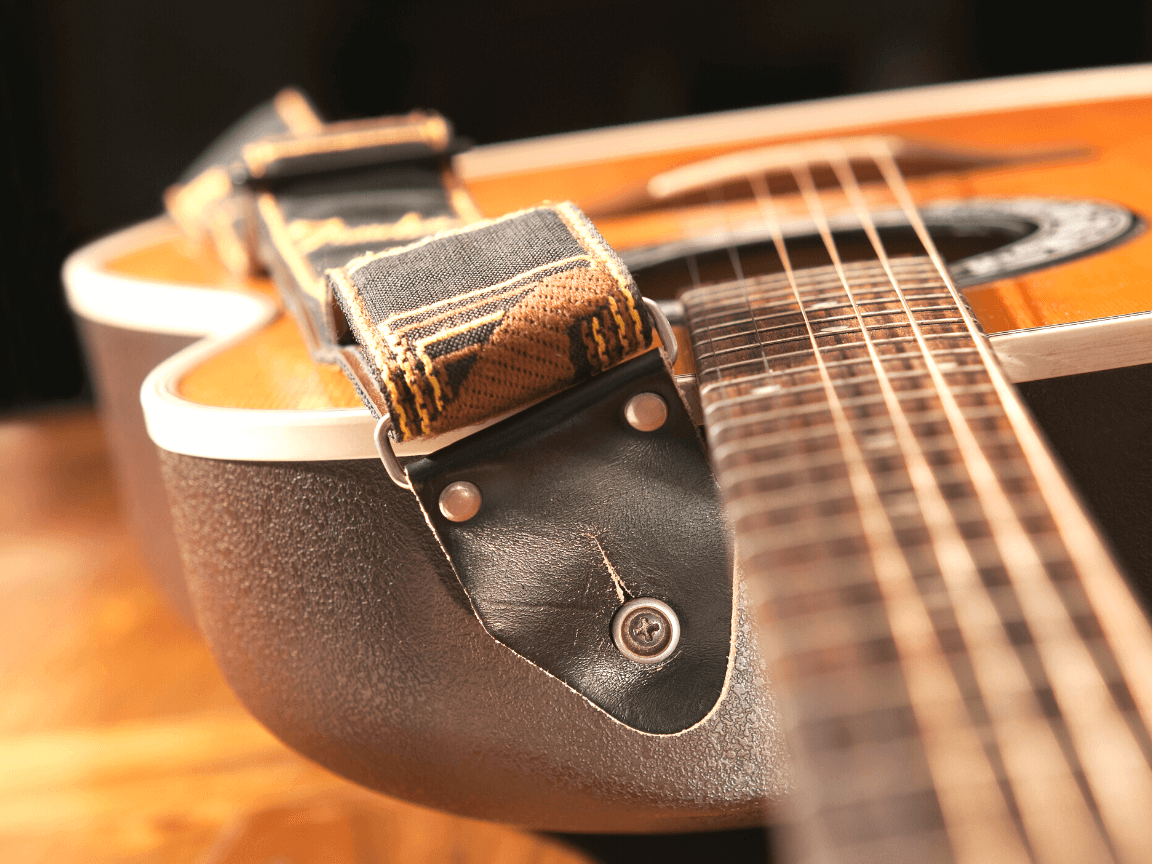Many budding musicians often grapple with decisions about the kind of instrument to purchase when starting their musical journey.
For guitar enthusiasts, a prevailing question is the relevance of price in determining the quality of their first instrument.
There’s no denying that guitars come with varied price tags ranging from the surprisingly affordable to the eye-wateringly costly.
A crucial factor worth consideration by beginners is the balance of their current skills, learning objectives, budget, and the quality of the instrument.
Surprisingly, the hefty price tag on a guitar doesn’t necessarily mean it’s the right choice for a novice.
Let’s delve into the parameters that should guide your expenditure on a beginner’s guitar.
Table of Contents
- Should Beginners Invest in an Expensive Guitar?
- Why People Usually Buy Expensive Guitars?
- Benefits of Buying an Expensive Guitar as a Beginner
- How Long Does a High-End Guitar Last?
- Factors to Consider When Buying Your First Guitar
- Affordable vs. Expensive Guitars
- Role of a Guitar’s Price in Learning Progress
- The Reality of Depreciation in High-End Guitars
- Why Might Beginners Choose to Invest in Cheap Guitars?
- When is the Right Time to Upgrade to a More Expensive Guitar?
- How Does the Price of a Guitar Impact Its Resale Value?
- The Bottom Line
Should Beginners Invest in an Expensive Guitar?
The value of investing in an expensive guitar as a beginner largely depends on the individual’s commitment and financial capability. Higher-priced guitars often provide better sound quality, playability, and longevity which could enhance the learning experience. However, if the budget is limited or the interest in learning is uncertain, it might be more practical to start with a less expensive model.
In the following sections, we delve deeper into the nuanced relationship between the quality of a guitar and the player’s level of proficiency.
We will explore the inherent benefits and drawbacks of premium guitars, how they can affect a beginner’s journey, and the mid-priced alternatives that combine quality with affordability.
In addition, we will provide guidance on how to ascertain your personal needs as a beginner guitarist which is crucial in making a worthwhile investment.
This detailed analysis would equip you with knowledge to make an informed decision in purchasing your first guitar.
Why People Usually Buy Expensive Guitars?
The world of guitars is quite diverse, offering a range of options from low-cost entry-level models to high-end expensive models.
Interestingly, a substantial number of people opt for the latter, spending hundreds or even thousands of dollars on their purchase.
But why buy expensive guitars?
Sense of Achievement and Satisfaction
One reason is the psychological satisfaction associated with owning a premium product.
Having an expensive guitar can be seen as a status symbol, representing a significant achievement in a guitarist’s journey, irrespective of their skill level.
Moreover, the very action of investing in an expensive guitar can motivate individuals to practice harder and improve more quickly – after all, they’ve invested in a piece of equipment that’s designed for high-quality performance.
Moreover, the very action of investing in an expensive guitar can motivate individuals to practice harder and improve more quickly – after all, they’ve invested in a piece of equipment that’s designed for high-quality performance.
This principle works similarly to investing in high-quality gym equipment or a premium bicycle – the investment serves as motivation to make the most of the purchase.
Sound Quality and Performance
The second reason guitarists are drawn to expensive guitars is the incredible sound quality and performance these offer.
High-end guitars tend to have better sustain, tuning stability, and overall tonality, providing a rich, superior musical experience.
Moreover, the materials used in constructing these guitars – such as select woods for the body and fretboard – contribute to their clearer, fuller, and richer sound.
An expensive guitar can make a world of difference when it comes to producing high-quality music.
An expensive guitar can make a world of difference when it comes to producing high-quality music.
The build quality of expensive guitars also ensures that the guitar performs better under various playing conditions – from gentle strumming to aggressive fingerpicking, the guitar is expected to deliver consistent performance.
Durability and Longevity
Thirdly, expensive guitars are typically more durable and long-lasting.
They are made with high-quality materials and are designed to withstand the test of time.
While a cheap guitar may start showing signs of wear and tear sooner, an expensive guitar, if cared for properly, can remain in top shape for a very long time.
It can potentially serve as a lifelong companion for the guitarist.
This makes expensive guitars a good investment, not just in terms of their performance but also their longevity.
This makes expensive guitars a good investment, not just in terms of their performance but also their longevity.
Therefore, the upfront cost of an expensive guitar can be deemed worthwhile when considering the potentially decades-long lifespan.
This insightful video offers a deep exploration into the world of cheap versus expensive guitars and helps viewers form a better understanding of the differences.
It gives guitar enthusiasts a chance to see and hear the disparity in sound, build, and overall value.
Benefits of Buying an Expensive Guitar as a Beginner
There is a common misconception that beginners should start their guitar journey with a cheap instrument.
This notion stems from the idea that beginners might not stick to learning thus making the investment in an expensive guitar go to waste.
Higher Quality Sounds
One of the significant advantages of expensive guitars is their superior sound quality.
Developing an ear for excellent tunes early promotes better musical understanding and appreciation.
A high-end guitar, well set-up, generates richer tones and resonance that cannot be compared to cheaper models.
A high-end guitar, well set-up, generates richer tones and resonance that cannot be compared to cheaper models.
This can significantly improve a beginner’s experience and enthusiasm for learning, making their practice sessions more engaging and entertaining.
The resulting satisfaction and motivation fuel the passion for more learning, creating a robust foundation for mastering the instrument.
Enhanced Playability
High-end guitars offer unmatched playability compared to their cheaper counterparts.
Their fretboards are generally smoother, strings are closer to the fretboard, and the overall construction quality is more ergonomically designed.
Such craftsmanship features vastly reduce the effort required to play, thus enabling beginners to practice longer and more efficiently.
High-end guitars offer unmatched playability compared to their cheaper counterparts.
This minimizes the chances of developing bad playing habits or hand strain, allowing beginners to concentrate on improving their technique and expanding their musical repertoire.
Moreover, expensive guitars give an overall better feel and experience, providing a sense of fulfillment that encourages continuous learning and enjoyment of music.
Durability and Longevity
Expensive guitars are typically created with high-quality materials and superior craftsmanship, leading to exceptional durability.
This ensures that the guitar not only lasts longer but also maintains its playability and tonal qualities over time.
As a result, beginners won’t need to worry about the instrument losing its performance attributes soon, allowing them to focus on honing their skills.
Expensive guitars are typically created with high-quality materials and superior craftsmanship, leading to exceptional durability.
The long-term reliability of an expensive guitar often nullifies the cost factor, ultimately providing more value to the user, an aspect that beginners might need at the outset of their learning journey.
Therefore, investing in an expensive guitar as a beginner has numerous benefits including superior sound quality, better playability, and exceptional longevity, which can significantly enhance a beginner’s learning experience and progress.
How Long Does a High-End Guitar Last?
The lifespan of a high-end guitar can vary greatly depending on multiple factors.
The quality of the materials used, the craftsmanship involved in the build, and the care taken in maintaining the guitar all play a vital role.
Many top-tier guitars are made from premium wood types which not only provide the instrument with a unique tone but also tend to be very durable.
Prolonged exposure to moisture and heat however, can cause even the best kinds of wood to crack or warp.
When a high-end guitar is crafted, the attention to detail and the skills of the luthier come into play to ensure the instrument’s longevity.
High-quality hardware materials and proper installation practices can definitely increase the life expectancy of a guitar.
A responsible owner plays a big role in how long a high-end guitar lasts.
The right storage conditions, frequent check-ups and cleanings can extend the lifespan of a guitar significantly.
Considering that high-end guitars are usually a substantial investment, it only makes sense to take good care of them.
Proper maintenance is the key to ensuring the longevity of a high-end guitar.
Consistently wiping down your guitar after playing, using the right products to clean it, making sure it’s stored in a temperature-controlled environment can all contribute to its longevity.
Even minor things like maintaining the guitar’s humidity and avoiding abrupt temperature fluctuations can make a big difference in how long your investment lasts for.
You’ll get a different perspective from a musician’s point of view about the optimal conditions for guitar storage and maintenance.
You’ll also learn common errors to avoid in order to ensure your instrument stays in its prime condition for longer.
A well-crafted and well-maintained high-end guitar can last for decades.
There are examples of guitars built by renowned manufacturers such as Gibson and Fender that are still in perfect working order after 50 years or more.
A high-quality guitar, with the right care and maintenance, can truly last a lifetime.
That being said, individual components of the guitar like strings or electronic parts might need replacement over time.
But the overall structure and playability of the guitar can remain intact for years, if not generations, making them potential heirlooms.
Given how long a high-end guitar can last and the benefits it brings, many guitarists and enthusiasts see these instruments as more than just a possession.
They are an investment, a companion, and a testament to the durability of quality craftsmanship.
Factors to Consider When Buying Your First Guitar
Buying your first guitar can be both an exciting and overwhelming experience, given the vast array of choices available in the market.
Among the numerous factors that should influence your decision include your budget, the type of music genre you aim to play, the guitar’s playability, its construction and material, and its overall sound quality.
Your budget plays a significant role in determining the type of guitar you can afford.
Remember, however, that price doesn’t always equate to quality.
Don’t rush to buy an expensive guitar thinking it would be better.
It’s advisable to start with something within your financial reach and then upgrade once you advance in skills and experience.
The type of music genre you aim to play is one of the most critical factors when choosing your first guitar.
This can’t be emphasized enough: Know the type of music you wish to play before deciding on the guitar to buy.
For instance, if you’re into rock or blues, an electric guitar might be a good fit for you.
On the other hand, those who love playing folk or country songs may prefer an acoustic guitar.
It’s essential to choose a guitar that suits your musical interests as this will keep you motivated to learn and play more.
The playability of a guitar refers to how comfortable it is to play.
This is determined by factors such as the width and shape of the neck, the distance of the strings from the fretboard, and the weight and size of the guitar.
As a beginner, you should opt for a guitar with good playability to make the learning process more enjoyable and less demanding on your fingers and hands.
The construction and material used in making a guitar significantly affect its sound, durability, and aesthetic appeal.
Generally, guitars made from solid wood, particularly on the top, produce richer sounds than those made from laminated wood.
However, solid wood guitars are more expensive and require more care to maintain.
Sound quality is a crucial factor to consider when buying your first guitar.
Lastly, sound quality is a subjective factor that mostly depends on personal preference.
A guitar might be highly rated, but if you don’t like its sound, it wouldn’t be the right choice for you.
It’s essential to try playing the guitar or listening to someone else playing it before making a purchase.
This ensures that the sound appeals to your musical taste.
Affordable vs. Expensive Guitars
When on the journey to purchase a guitar, a daunting decision awaits you; whether to buy an affordable or an expensive guitar.
The price tag of a guitar is often reflective of various key elements.
By investing your time in the above video, you’ll gain a more profound understanding of the contrasting features between an affordable and an expensive guitar.
You will also discern why there is such a significant price gap between the two categories.
Materials and Craftsmanship
One cornerstone difference between affordable and expensive guitars lies in the materials and craftsmanship.
Generally, expensive guitars boast premium woods like Sitka spruce, rosewood or mahogany, which greatly influence the sound quality.
Moreover, high-end guitars undergo meticulous craftsmanship, a labor-intensive process that requires years of training and experience.
Therefore, the materials used and the level of craftsmanship are key determinants of the guitar’s price.
This statement stands because to achieve an outstanding soundscape and prolonged durability, manufacturers must use high-end, carefully selected wood.
The craftsmanship also need to be beyond reproach, thus contributing to a higher price tag.
Sound Quality and Tonal Versatility
Another differing facet lies in the realm of sound quality and tonal versatility.
Cheap guitars may produce a decent sound but, expensive guitars tend to provide richer, fuller tonal variations, subtle harmonic overtones, and an exceptional resonance.
Expensive guitars vest more in quality electronics and hardware, enabling them to deliver superior sound quality and varied tones.
An expensive guitar’s quality hardware such as the tuners, pickups, and bridge, aids in achieving better intonation, tuning stability, and electrical signal reproduction.
The totality of these elements helps to set expensive guitars apart from their affordable counterparts.
Overall Durability
Lastly, differences between affordable and expensive guitars extend to their durability.
Due to the use of premium components and expert craftsmanship, high-end guitars are typically more durable.
They are built to withstand the rigors of heavy playing and even touring.
Thus, an expensive guitar often last longer than a budget version.
In the grand scheme of things, the option between buying an affordable or expensive guitar can be a challenging decision.
Understanding the key differences, specifically in terms of materials and craftsmanship, sound quality, and durability, plays a vital role in making an informed decision.
Role of a Guitar’s Price in Learning Progress
The price of a guitar has a significant impact on the learning progress of a beginner, both positively and negatively.
The Price-Quality Relationship
It’s a general consensus that there’s a direct correlation between the price and the quality of a guitar.
More expensive guitars are usually crafted with higher quality materials, which not only ensures greater durability, but also contributes to better sound quality.
Your guitar’s sound can play an instrumental role in providing motivation for you to keep practicing and improving on your guitar skills.
When beginners invest in a high-quality guitar, they’re actually paying extra for a high-performance instrument that can help accelerate the learning process.
More expensive guitars are usually crafted with higher quality materials, which not only ensures greater durability, but also contributes to better sound quality.
This is because better quality guitars offer a more satisfying playing experience that can drive beginners to practice more.
Also, these instruments are designed to produce a deep, rich tone that can make even basic chords sound appealing and encouraging to the learner.
Tempered by Cost Considerations
However, the price-value relationship isn’t always straightforward, especially for beginner guitars.
While high-end guitars offer a multitude of advantages, they can also present financial challenges for many beginners.
Given the uncertainty of sticking with the instrument in the long run, beginners might be hesitant to invest a hefty sum in their first guitar.
Given the uncertainty of sticking with the instrument in the long run, beginners might be hesitant to invest a hefty sum in their first guitar.
It’s critical to balance the cost and benefits of investment, factoring in personal financial circumstances and commitment towards learning the instrument.
Budget guitars, although they may not offer comparable sound quality or durability, can still serve as a practical starting point for many.
Comfort, Playability and Learning Effort
Another crucial aspect to consider is that the price of a guitar can also affect its comfort and playability.
Expensive guitars tend to have better construction and design, translating to a more comfortable grip and easier playability.
This is particularly crucial for beginners who are still getting accustomed to the physical demands of the instrument.
A guitar that’s easier to play can reduce the physical strain on your fingers and wrists, thereby enabling you to practice for longer periods without discomfort.
A guitar that’s easier to play can reduce the physical strain on your fingers and wrists, thereby enabling you to practice for longer periods without discomfort.
Thus, investing in a costlier guitar might seem like a significant expenditure in the short term, but the improved playability can actually fast-track your learning and mastery of the guitar.
After all, the more you practice without discomfort, the faster you learn.
The Reality of Depreciation in High-End Guitars
When discussing the purchase of any high-ticket item, an important factor to consider is its depreciation value.
This factor becomes even more significant when it comes to instruments like guitars, especially if you’re planning to invest in a high-end model.
The price tag of a high-quality guitar doesn’t simply reflect the cost of materials and labour; it also factors in the brand reputation, the quality and rarity of the materials used, and the craftsmanship involved.
What Exactly is Depreciation?
Simply put, depreciation is the decrease in an item’s value over time.
Factors contributing to depreciation can include wear and tear, changes in market demand, or newer models rendering older ones obsolete.
However, when it comes to high-end guitars, the depreciation process can often work a little differently.
Unlike many other items, a well-cared-for guitar can actually appreciate in value over time.
Unlike many other items, a well-cared-for guitar can actually appreciate in value over time.
This statement is more valid when the guitar in question is a unique or limited-edition model as they can often become collector’s items.
Bearing the signature of a renowned luthier or a well-known music personality can also increase a guitar’s value.
Impact of Maintenance on Depreciation
Another crucial aspect is the condition of your guitar.
Proper maintenance really goes a long way in preserving or even enhancing the guitar’s value over time.
An excellently maintained guitar can command a high resale price notwithstanding its age.
On the other hand, a neglected guitar, no matter how expensive at the outset, will considerably lose its value.
By watching the video, you can grasp more about guitars with remarkable resale value, and these might even lead you towards making a potentially sound investment.
The knowledge from the video might also provide you with insights into what makes a guitar desirable in the market, helping you understand depreciation better.
Bridging the Gap to Depreciation
In some situations, your guitar might not be able to buck the trend of depreciation.
Mass-produced models made with commonplace materials, for example, are unlikely to appreciate in value over time.
Even if such a guitar is kept in pristine condition, it will usually not retrieve its original price in the resale market.
But with the bigger picture in mind, the enjoyment and satisfaction derived from a high-quality guitar can far outweigh the financial depreciation.
But with the bigger picture in mind, the enjoyment and satisfaction derived from a high-quality guitar can far outweigh the financial depreciation.
Indeed, many guitarists view their instruments as far more than mere financial assets but as partners in creating music and avenues for self-expression.
So while it’s important to consider the financial aspect, remember that buying a guitar isn’t just about dollars and cents, but also about finding the right tool to inspire and enhance your musical journey.
Why Might Beginners Choose to Invest in Cheap Guitars?
Affordability
One of the primary reasons why beginners might opt for cheap guitars is to do with affordability.
As a novice, investing in an expensive guitar might seem too hefty a price to pay.
It’s a well-known fact that learning a new instrument, like the guitar, needs a monetary commitment alongside the dedication of time and effort.
Thus, opting for a more affordable guitar might seem like the more prudent choice, especially for those unsure of their level of commitment or those who have a tight budget.
Thus, opting for a more affordable guitar might seem like the more prudent choice, especially for those unsure of their commitment or those who have a tight budget.
Therefore, many beginners choose cheaper guitars since it’s a lower risk investment and can help them gauge their interest in playing the guitar long term.
Experimentation and Learning
While starting their journey with a budget instrument, beginners have the freedom to experiment and learn without the fear of damaging an expensive piece.
Since cheap guitars lack the precision and detail-oriented craftsmanship of an expensive one, it allows beginners to focus on the basics first.
This method could arguably be more preferable than trying to navigate the complexities of a professional-level guitar from the get-go.
This method could arguably be more preferable than trying to navigate the complexities of a professional-level guitar from the get-go.
Hence, a beginner choosing a cheap guitar could gain valuable learning experiences and feel more at ease while exploring the instrument.
Personal Preference
A final reason is related to understanding personal preference for a musical instrument.
Every guitar, regardless of cost, has its unique sound and feel.
By starting off with a cheap guitar, beginners can time to discern what they value in a guitar’s sound and how it feels in their hands.
This understanding is beneficial before progressing to more expensive guitars.
By starting off with a cheap guitar, beginners can time to discern what they value in a guitar’s sound and how it feels in their hands.
After all, a budget-friendly guitar might just be the stepping stone a beginner needs in their musical journey before moving onto the premium range of guitars.
When is the Right Time to Upgrade to a More Expensive Guitar?
Deciding when to upgrade to a pricier, higher-quality guitar can be a confusing and daunting choice, particularly for beginners.
While it might be tempting to stick with a cheaper model, eventually a musician’s skill and development may outgrow their starter instrument.
The first step to knowing when it’s time to upgrade is by assessing your current guitar’s limitations.
If you frequently find that your instrument is hindering your progress, rather than aiding it, this could be a sign that an upgrade is in order.
Whether it’s poor sound quality, inability to stay in tune, or physical discomfort while playing, these are all indicators that your guitar may not be meeting your needs anymore.
If you frequently find that your instrument is hindering your progress, rather than aiding it, this could be a sign that an upgrade is in order.
This fact illustrates that guitars, much like any equipment, must be on par with a musician’s skill level.
A cheap, beginner’s guitar might have been sufficient on day one, but it may now be the obstacle that is preventing you from reaching a higher level of musicality.
The decision to upgrade is also linked to your level of commitment in learning the guitar.
If you are not committed to learning or practicing regularly, then an expensive guitar might not be the best choice.
On the other hand, if you’re showing consistent progress and dedication towards your craft, a better instrument could greatly boost your learning journey.
If you’re showing consistent progress and dedication towards your craft, a better instrument could greatly boost your learning journey.
It is necessary to keep in mind that like in any other field, in music too, the quality of your tools can influence the quality of your outcome.
Thus, if you are serious about your music, consider investing in a high-end guitar as an investment in your budding career.
By watching the embedded video, you can gain a more comprehensive understanding of the decision-making process when it comes to advancing to a higher-quality guitar.
There are some real-life examples and insights that can help you determine when to take the plunge and say ‘yes’ to the upgrade.
How Does the Price of a Guitar Impact Its Resale Value?
The price of a guitar certainly has a profound impact on its resale value.
This aspect is noteworthy when considering to invest in an expensive instrument or if you plan to sell it in the future.
Here, we will explore a few key points that highlight the relationship between a guitar’s original price tag and its resale value.
The Brand and Model Influence the Resale Value
One of the key factors that influence the resale value of a guitar is its brand and model.
Prestigious brands like Gibson, Fender, and Martin are well sought-after in the used guitar market due to their renowned quality and enduring recognition.
Models from these high-end brands maintain their worth well when it comes to resale, particularly if they are flagship models or limited edition pieces.
The original price of such guitars is naturally on the higher end.
The longevity and legacy of high-end guitar brands amplify the resale value of their instruments.
This quote proves the importance of brand reputation and model rarity in determining a guitar’s resale value.
The price tagged at the time of first purchase, particularly if it belongs to a well-known and respected brand, lays a strong foundation for promising resale value.
The Condition of the Guitar Matters
Another critical factor that affects the resale value is the condition of the guitar.
A meticulously maintained guitar decreases in value at a slower pace compared to one that has been neglected.
Guitars that were quite expensive when purchased new tend to be taken care of more than their cheaper counterparts, therefore, these instruments often have better resale value.
Guitars that retain their optimal condition over a significant period tend to maintain a higher resale value.
This statement substantiates the need for proper maintenance to preserve a guitar’s resale value.
It signals prospective buyers of the care invested into the instrument, hence, they are often willing to pay a premium for it.
As the initial investment in expensive guitars often encourages more meticulous maintenance, the retained condition of these guitars helps to support the resale value.
Market Demand and Guitar Value
The third aspect to consider is the market demand.
The demand for a specific type or brand of guitar in the used market can push its resale value up or down.
For instance, vintage guitars from prestigious brands with a significant past might command higher prices due to their demand among collectors.
Modern brands or models with high ratings and reviews might also enjoy higher resale value due to increased demand.
Market demand for a particular guitar, whether vintage or modern, shapes its resale value.
From this observation, it can be said that independent of the original pricing, guitars with a high demand in the market can attain great resale value.
However, it’s important to note that guitars with a higher initial price often hold up well in terms of demand due to their inherent quality and reputation in comparison to cheaper counterparts.
The Bottom Line
Navigating the world of guitars, particularly as a beginner, can be quite challenging.
The price of a guitar, be it low-end or high-end, plays a significant role in your learning journey and the longevity of the instrument.
While expensive guitars usually offer incredible sound quality, durability, and better learning experience, affordable ones might be a logical choice for those who are still unsure if they’ll persist with the instrument.
However, the reality of depreciation in high-end guitars and their resale value is something to bear in mind.
Furthermore, knowing when to upgrade to a more expensive guitar depends on your pace of learning and commitment to playing.
The best investment you can make as a beginner is in a guitar that fits both your budget and your needs, bearing in mind that the instrument’s price often reflects its quality and potential to enhance your learning progress.

Dad, husband, son, and guitarist. I’ve been playing guitar for 20 years. Passion for writing, painting, and photography. I love exploring nature, and spending time with my family. Currently have a Gretsch G5220 Electric Guitar as my main instrument.




